Famous RPCV Journalists: The China Gang
Although the Peace Corps has given a start to many well-known writers — Paul Theroux, Maria Thomas, Philip Margolin, Mary-Ann Tirone Smith, among them — it has fostered relatively few journalists and editors. One of the first journalists was Al Kamen, a Volunteer in the Dominican Republic during the early 1960s. Recently retired after 35 years at the Washington Post, Kamen wrote a column, “In the Loop,” and also covered the State Department and local and federal courts. He assisted his Post colleague Bob Woodward with reporting for The Final Days and The Brethren.
Other Peace Corps Volunteers (PCVs) of the 1960s who became well-known journalists include Vanity Fair’s special correspondent Maureen Orth, an urban community development volunteer in Colombia, and one of the first women writers at Newsweek, and MSNBC HardBall host Chris Matthews, who served in Swaziland.
There are more, of course, with that kind of media power. They went into film and the arts and other media careers, and all of them started out as PCVs.
But . . . despite sending more than 241,000 Americans overseas since the first group arrived in Ghana in 1961, the Peace Corps did not inspire many of them to become reporters and editors later on. The exception: Volunteers in the People’s Republic of China, four of whom — close friends during their Peace Corps years — have achieved major success reporting on their country of service. None of them has had any formal journalism training; instead, the members of the China Gang, as they might be called, found that their Peace Corps experience gave them a wealth of experience and knowledge about Asia.
Now a staff writer for The New Yorker, Peter Hessler served as a Volunteer from 1996 to 1998, teaching college classes in Fuling, China; since then he has published four well-received books about the country. The first, River Town: Two Years on the Yangtze (HarperCollins, 2001) tells the story of his Peace Corps years. Hessler, who is a winner of the Kiriyama Prize, a National Magazine Award, and was named a MacArthur Fellow in 2011, has had all of his books on the New York Times bestseller list. Peter now lives in Cairo, reporting on Egypt for the magazine. Asked why China, specifically, has produced such good journalists, Hessler credits Bill Speidel, Peace Corps Country Director during their time in China.
The China program was unusual in that the country director was an academic and a Sinologist, and not a Peace Corps person. I think this benefited us in that he encouraged us to think about China in a more analytic way.
“Bill was highly critical of the way the western press covered the country,” Hessler says. “I think this influenced us to some degree. It’s true most foreigners living in the interior of China in the mid-1990s would have found the [press’s] coverage [of China] problematic, simply because it was so Beijing–and Shanghai–focused.
“Also, there weren’t many good nonfiction books about China at that time. In Fuling I had a very strong feeling there were major gaps in the material that was available about China. That feeling was part of what made me write River Town—I had very specific ideas about what was missing. I had published before going into the Peace Corps, and I continued to write some travel stories while I was overseas, and now I wanted to write a book about China.
Another China RPCV who stayed in-country to write about China was Michael Meyer.
After his service, in 1998, Meyer lived in Dazhalan; one of the oldest neighborhoods of Beijing, it gave him the idea for his first book. During that time he also continued to teach English in the community’s schools. “Serving in Peace Corps taught me not to take myself so seriously, to laugh at myself as much as the locals did. And it taught me that their stories—and how they viewed me—were far more interesting than my story, and how I viewed them.”
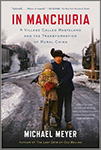 Now an assistant professor of nonfiction writing at the University of Pittsburgh, Meyer is working on his third book about China. The first two — The Last Days of Old Beijing — about a traditional neighborhood, and In Manchuria: A Village Called Wasteland and the Transformation of Rural China, about a northeastern rice farm — were published in 2008 and 2015. His writings have won the Lowell Thomas Award for Best Travel Book, the Whiting Award, and a Guggenheim Fellowship.
Now an assistant professor of nonfiction writing at the University of Pittsburgh, Meyer is working on his third book about China. The first two — The Last Days of Old Beijing — about a traditional neighborhood, and In Manchuria: A Village Called Wasteland and the Transformation of Rural China, about a northeastern rice farm — were published in 2008 and 2015. His writings have won the Lowell Thomas Award for Best Travel Book, the Whiting Award, and a Guggenheim Fellowship.
While Michael Meyer stayed in China after his Peace Corps tour, Peter Hessler went home in 1998 to St. Louis, Missouri, to try and find a job as a journalist.
He couldn’t get a job.
His applications showed he was a Princeton graduate, a Rhodes Scholar and a Peace Corps veteran who had lived in the Far East for two years; he had published in the New York Times, Washington Post, Philadelphia Inquirer, Atlantic Monthly and other publications. Nevertheless, Peter was told by editors that they only hired those who had completed an internship or a college journalism program.
“Newspapers and magazines weren’t interested,” recalls Hessler, “despite my publications, a good education resume, my Peace Corps experience and my fluency in Chinese.”
A Los Angeles Times editor even suggested that he work for a small-town newspaper and gain some experience before trying to find a big-city job.
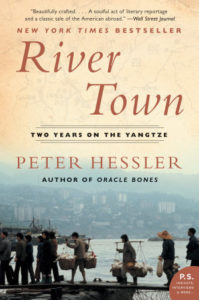 “I realized, that route to a city newspaper would take me most of a decade and at the age of 29 I did not want to wait that long,” Hessler says. “So I decided to try to freelance in China. I had just sold River Town for an advance that was not huge, but it was enough to pay off the rest of my college loans and give me a bit of a cushion. That helped me make the decision to go back to China.”
“I realized, that route to a city newspaper would take me most of a decade and at the age of 29 I did not want to wait that long,” Hessler says. “So I decided to try to freelance in China. I had just sold River Town for an advance that was not huge, but it was enough to pay off the rest of my college loans and give me a bit of a cushion. That helped me make the decision to go back to China.”
In March 1999, Hessler bought a ticket from St. Louis to Beijing, leaving the return date open. He had lined up a job as a “clipper” at the Wall Street Journal bureau in the capital. He would cut out stories and file them for the bureau staff, a task the Internet has since rendered obsolete. “I would also help the correspondents with interviews, research, and translation. It paid only $500 a month, but it gave me a base in the office. I figured I would do that job and freelance on the side. Beijing was still very cheap and I found an apartment for a couple of hundred dollars a month,” Hessler says.
Another Volunteer in the 1996-1998 Peace Group group was Rob Schmitz who lives and works today in Shanghai as the Chinese correspondent for American Public Media’s Marketplace, the largest business news program in the U.S. Schmitz also left China after his Peace Corps service, and returned home to St. Paul, Minnesota, to teach Spanish at a middle school. That didn’t last long.
I had been spoiled by my diligent and hardworking students in China. This was 1999, and everyone was beginning to use email. Many of us [who’d been in the China group] were constantly sending messages to each other about how much we missed living there, scheming ways to get back. I remember stealing away to a conference room twice a week to talk about this to my China fellow PCVs, Adam Weiss and Craig Simons, and by the end of 1999, all three of us were primed to return.
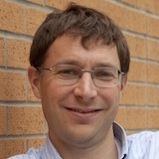
Craig Simons
Craig Simons, now in the U.S. Foreign Service, stationed at the U.S. embassy in Cuba, was then working in a program for Chinese scholars at Harvard University’s Kennedy School of Government. He left that behind at the beginning of 2000, when he and Schmitz moved to Chengdu, China, to try their hands at journalism.
Rob Schmitz wrote in an email:
What each of us was doing — dropping everything to suddenly leave for China like that — was pretty risky, but we had strength in numbers. Pete was in Beijing, Craig and I were in Chengdu. Another fellow China Three Volunteer, Mike Goettig, was also in China, living in Kunming, trying to start a bar with a Chinese friend. We were all very good friends, and we supported each other through it all. For me, that support was crucial. Had those guys not been there, I’m not certain I would’ve just up and left like that.
Peter Hessler, for example, put us in touch with Kaiser Kuo, a famous rock musician in China, when we arrived back in Chengdu. Kaiser needed writers for a new start-up, Chinanow.com. It was a great gig. Kaiser paid us one yuan per word, and we often wrote 1000-word articles. Since each of us only paid around 600 yuan in rent per month, we could easily afford life in Chengdu.
Kaiser also allowed us to piggyback those China now stories and pitch them to newspapers in the United States. Both Craig and I began getting articles published in papers like the Christian Science Monitor, the Far Eastern Economic Review, The Hong Kong Standard, Newark Star-Ledger, and others.
Later that year, Craig was admitted to Harvard to begin a Masters in East Asian Studies, and Rob was admitted to Columbia University’s Graduate School of Journalism. They left China again, this time for graduate school.
After earning his master’s degree from Harvard, Craig Simons returned to China and lived there for the next eight years. Freelance, he wrote for Outside, Backpacker, The New York Times, and The Wall Street Journal, among other publications. In 2003, he began reporting for Newsweek and in 2005 was hired as the Asia correspondent for Cox Newspapers, a chain of American dailies.
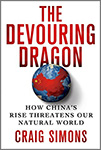 In 2009, he was one of twelve journalists to win a prestigious Knight Science Journalism Fellowship from MIT, and he later held a public policy scholar position at the Woodrow Wilson Center in Washington, DC. In 2013, St. Martin’s Press published Craig’s first book, The Devouring Dragon: How China’s Rise Threatens Our Natural World. He joined the Foreign Service in 2012.
In 2009, he was one of twelve journalists to win a prestigious Knight Science Journalism Fellowship from MIT, and he later held a public policy scholar position at the Woodrow Wilson Center in Washington, DC. In 2013, St. Martin’s Press published Craig’s first book, The Devouring Dragon: How China’s Rise Threatens Our Natural World. He joined the Foreign Service in 2012.
R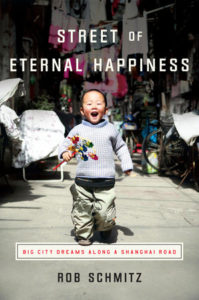 ob Schmitz returned to China in 2010 to live in Shanghai, the focus of his new book Street of Eternal Happiness: Big City Dreams Along a Shanghai Road. In 2012, he exposed fabrications in Mike Daisey’s account of Apple’s Chinese supply chain on “This American Life,” and his report headlined that show’s much-discussed “Retraction” episode. The work was a finalist for the 2012 Investigative Reporters and Editors Award. He has won two national Edward R. Murrow Awards and an award from the Education Writers Association for his reporting on China.
ob Schmitz returned to China in 2010 to live in Shanghai, the focus of his new book Street of Eternal Happiness: Big City Dreams Along a Shanghai Road. In 2012, he exposed fabrications in Mike Daisey’s account of Apple’s Chinese supply chain on “This American Life,” and his report headlined that show’s much-discussed “Retraction” episode. The work was a finalist for the 2012 Investigative Reporters and Editors Award. He has won two national Edward R. Murrow Awards and an award from the Education Writers Association for his reporting on China.
Peter Hessler got his big break in the spring of 2002 when National Geographic asked him to write a feature on the Great Wall, following it as far as they could by car through rural China. Soon after, he sold his first story to The New Yorker. All of this happened six months before the publication of River Town, the first book by a Peace Corps Volunteer from China.
“It does make a case that the Peace Corps made us,” Hessler wrote in an email. “Michael, Craig, Rob or myself; we had not studied either China or journalism in college. I took one course in nonfiction writing, but most of my writing was in fiction, and I majored in English and creative writing. I never published anything in a campus paper or magazine, which may also be true for Craig and Rob. And none of us had studied any Chinese before arriving with the PC.”
Of all the books about China published in the United States from 1995 until now, the number written by those four returned Peace Corps Volunteers is eight — which is more than the number of books written in those 21 years by all the correspondents from the Wall Street Journal, New York Times, Washington Post, Newsweek, and Time magazine combined. (There are also at least two more books written by PCVs who served in China later on.)
Hessler thinks the reason for this outpouring by former Volunteers is a “reflection of a certain Peace Corps mentality— the toughness and the willingness to take risks.” He writes in an email, “The people that I went to college with at Princeton and Oxford generally would not be willing to go to a place like Beijing and try to freelance, with no guaranteed income or career path. But after the Peace Corps, all of us became more resourceful, and of course, the Chinese taught us something about seeing an opportunity and playing your hand. In my experience, that honestly was a factor.”
In Hessler’s opinion, the Chinese people that he knew were very tough, and they moved fearlessly and without regret at the first sign of opportunity. “I think that influenced my path as a writer,” he says. “I made a lot of counterintuitive and risky decisions during the early part of my career, which put me in a position to get unusual material and write about it in a creative way. Everybody in China was having their lives shaken up, and it made us more likely to do the same.”
“I think that is true,” adds Michael Meyer. “There was a lot of uncertainty in China’s society when we were there, which was actually very encouraging. How to get an apartment, find a job, subscribe to a mobile phone, buy a plane ticket — these weren’t just new for me, my Chinese colleagues were rookies, too. In a sense, it was the Age of Novices, as we all navigated this new society. To an outsider, it looked like I was taking risks, but within China, it felt like I was trying to keep my head above water, and follow the current along with everyone else.
“Now that I teach writing at university, I’m struck by how timid my students are about getting their hands dirty in the field, and how unwilling they are to write a story on spec, instead of first securing an assignment by querying. Of course, 99 percent of those queries come back marked ‘No,’ and so they toss their perfectly fine idea in the trash. Everything I’ve achieved as a writer came from doing the work itself, not asking for permission to write. That’s what the Peace Corps and living in China taught me.
“After Peace Corps and living in China, I never thought twice about how to get an interview, access to an archive, or permission to live in a neighborhood and on a farm where no other foreigner had ever tried, or even an editor’s thumbs-up to a story idea: I just did it.”
Sounds like an RPCV, doesn’t he?
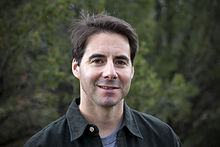
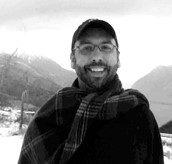
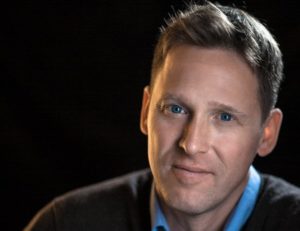
No comments yet.
Add your comment